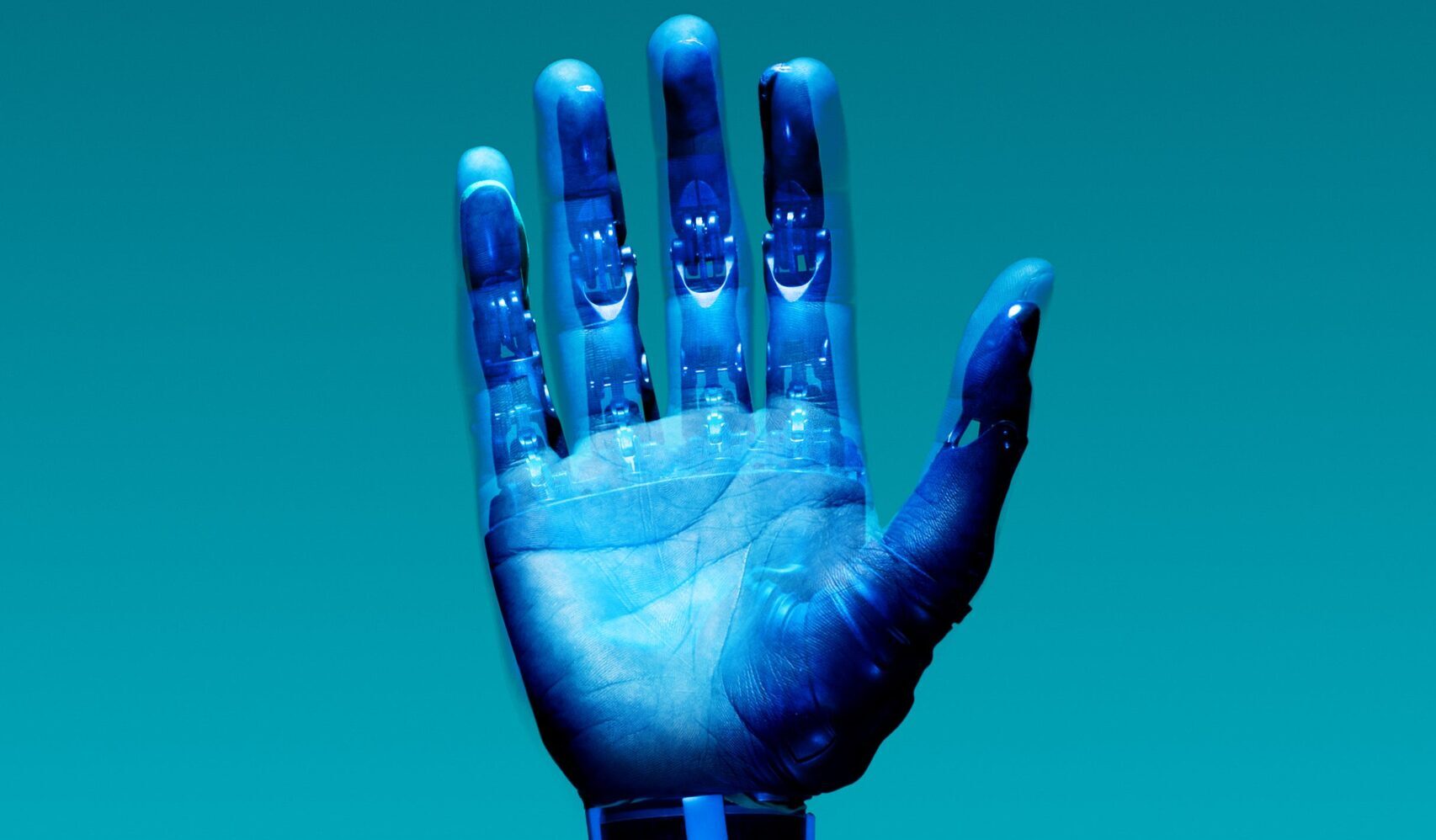AI is reshaping the workforce landscape
Artificial Intelligence, a concept once predominantly associated with perhaps questionable sci-fi movies, has quickly become the new normal in 2023.
The 2004 Will Smith film ‘I Robot’ explored the concept of robotic assistants programmed to aid humans in their everyday lives. At the time, this concept seemed to be distant and implausible—a captivating Hollywood plot unlikely to materialise in the real world. It’s incredible to think that close to 20 years later we find ourselves in an era where programs and chatbots, (albeit, not in robot form…yet), can simulate human intelligence and genuinely ‘learn’ the intricacies of human language and interaction.
The pace of advancements in the field of AI have been nothing short of remarkable. It’s hard to believe that it was only a little over a year ago, in November 2022, that Open AI launched ChatGPT to the public. What started as a novel and somewhat ‘scary’ concept—a tool that engages in conversation— has rapidly transformed into a practical addition seamlessly integrated into both our professional and personal spheres. I’ve read accounts of the tool being used to generate a full pitch response in just over an hour, to parents using GPT to explain concepts to young children in a way that is far more concise than any web search could answer.
Getting carried away by the excitement of generative AI is understandable, but genuine concerns persist about AI ushering in negative changes. Is AI truly a positive force in our lives, or does it signal the onset of workforce challenges?
AI is adding more jobs than it is eliminating
Reminiscent of the fear that came with the introduction of self service checkouts in supermarkets, similar concerns arise about chatbots replacing humans in the workforce. This is of particular concern to professional service providers, who are most likely to feel the impact of AI replacing some of their workforce. Katie Gardner, partner at Gunderson Dettmer law firm, states “Professional service providers (including lawyers) will need to rethink their business models, especially if they are heavily reliant on revenue generation in areas that can be reliably and efficiently replaced by AI—e.g., document review and diligence. The traditional pyramid model where you have a high volume of junior associates doing these tasks may no longer be economically feasible. There will be widespread upskilling as many tasks will no longer require humans to execute them.”
Indeed, instances of job redundancies are already surfacing in Australia due to a novel and ‘digitally-led’ approach, a subtle way of conveying the shift towards AI utilisation over human involvement. According to a recent study by Service Now, it is forecasted that by 2027 AI will lead to job redundancies for 1.3 million full-time Australian workers. The roles most likely to be affected are those involving high levels of repetitiveness and technical tasks, where an AI solution could deliver a more effective and productive result.
Fortunately, it’s not all doom and gloom in the broader workforce landscape, as currently, the growth in AI-related employment is surpassing the losses. In 2023 alone, the number of jobs in AI has doubled, and the World Economic Forum predicts that by 2025, AI will have created 12 million more jobs than it will have eliminated.

People form the foundation; AI elevates productivity
While some roles may be automated with generative AI, the prevailing sentiment is that the technology will enhance people’s roles and output, ultimately making their work lives more efficient. Joe Atkinson, Chief Products and Technology Office for PwC supports this notion, stating “A happier workforce leads to better business outcomes, and I’m optimistic about the role GenAI will play in contributing to a more personalised employee experience that will increase engagement, satisfaction, and productivity. There’s no doubt we’ll continue to see companies more aggressively roll out AI training and experimentation programs next year alongside growth in the most practical GenAI use cases that save organisations time and money, including more personalised customer support and recommendations, high-quality content generation, and workflow automation”.
New research from Stanford and MIT, initially reported by Bloomberg, reveals that artificial intelligence tools such as chatbots have increased worker productivity by 14% at a tech company. This study is considered a groundbreaking real-world application of generative AI in a workplace setting. The research, conducted over a year, focused on more than 5,000 customer support agents, primarily based in the Philippines, working for a Fortune 500 enterprise software firm.
Among the tech support agents who utilised AI tools to generate conversational scripts, there was an average 14% improvement in productivity, measured by issues resolved per hour. Notably, “novice and low-skilled workers” experienced an even more significant enhancement, completing their tasks 35% faster.
Businesses not adopting AI risk falling behind the pack
The business landscape is swiftly evolving with the advent of generative AI, and companies that overlook its adoption face the risk of falling behind.
According to a recent survey by Accenture, 84% of C-level executives believe that achieving their business strategy requires scaling AI. However, only 16% have transitioned from mere experimentation to establishing an organisation powered by robust AI capabilities.
Conversely, those integrating AI into their operations will witness heightened efficiency, cost savings, and revenue growth, rendering it a vital component in modern business strategies. Accenture’s research exemplifies this, revealing that a select group of top performers, incorporating AI into their practices, achieve nearly three times the return from AI investments compared to their lower-performing counterparts.

The importance of an AI strategy
Incorporating AI is a complex undertaking that might require substantial adaptations to a company’s culture and processes. Without careful planning and seamless integration, businesses face the risk of AI adversely affecting productivity and workflow.That’s why having a robust AI strategy is crucial. Eric Swift, ServiceNow VP and Managing Director for Australia and New Zealand, states “Unlocking the huge economic and productivity gains will require businesses, governments and individuals understanding what shifts will occur, and prioritising skills and using the right technology platforms to take advantage. This will help reverse declining Australian productivity, and it will also address skills shortages by freeing up talent to work in the most in-demand areas.”
Companies should identify strategic areas where AI can deliver maximum value and develop a clear plan for seamless incorporation into their operations. Key focuses should include:
- Enhancing product intelligence
- Elevating service intelligence
- Smartening business processes
- Streamlining repetitive business tasks
- Automating manufacturing processes
Embrace AI—it’s the present and the future
As an Operations Manager (or self-proclaimed geek), the idea of leveraging automation and generative AI to enhance workflow and productivity is truly thrilling. In my role heading into 2024, the emphasis is on enhancing structures and workflow, with a significant role for an AI strategy in achieving this goal. The idea of streamlining the development of questionnaires or consolidating focus group discussion guides is a welcome prospect, creating room for more profound contemplation on all projects.
David Haber, cofounder and CEO of Lakera, predicts “As AI training costs continue to drop, watch for a major shift: businesses of all sizes tailoring models like ChatGPT to tackle challenges unique to their operations. Whether it’s engineering, marketing, or HR, AI models will evolve into specialised assistants. Beyond individual tasks, these AIs will . . . also assist in strategic decisions. It’s not just boosting efficiency; it’s the start of a new business playbook being written, akin to the creation of the internet.”
Companies that dedicate their efforts to seamlessly incorporating AI into established workflows are positioned for success. To businesses, my recommendation is to wholeheartedly adopt AI. Falling behind competitors, who can handle double the workload due to enhanced productivity from their AI strategy and structures, is not the way forward for growth and prosperity.




